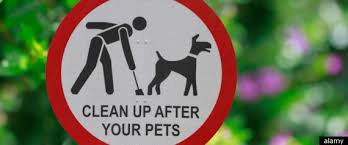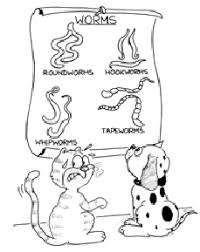a beautiful day, reaching 46 degrees F, enriched our lives today.
The sun came out, the snow has melted, and our pet's dropping
were now thawed and dried on the yard, covering the dead grass
underneath. It was time to put that "poop-scoop" to full use.



For a moment, I reflected on how unhygienic it is NOT to pick up
after our pets, and how easy it could be for other animals and even
children to pick up those droppings. However, this thought was
interrupted by the realization that my own dog is "dewormed"
monthly with a pill that kills a wide range of common and uncommon
intestinal parasites and heartworms. Not to mention that her stools
are routinely tested for intestinal parasites. As a result of both these
practices, I know very well that she is, and has been, parasite-free
her entire life.
So, why do I bother with the monthly "broad-spectrum dewormer"
for my dog? Well, while cleaning my own dog's droppings, I
stumbled onto a few piles of deer droppings in the front yard.
These wild animals make it to my home, my dog's environment, my
child's play area, and spread their own feces all around. While I
can control my dog's health, I cannot control other pets and wildlife,
and she will always be exposed to parasites from other sources
(like those deer using my front yard as a latrine).
We have an arsenal of medications that help us treat and prevent
parasitic infections in our pets. It is recommended that our pets
be tested, at least annually, for intestinal parasites and heartworms.
Also, the current recommendation is to keep them up-to-date on a
monthly heartworm-preventative, and at least an annual general
"dewormer" for intestinal parasites. Many "heartworm pills" today
also contain the general "dewormer", and if it is given monthly to
our pets, we are preventing parasitic diseases in our pets and also
protecting our families.
For more information please visit:
No comments:
Post a Comment